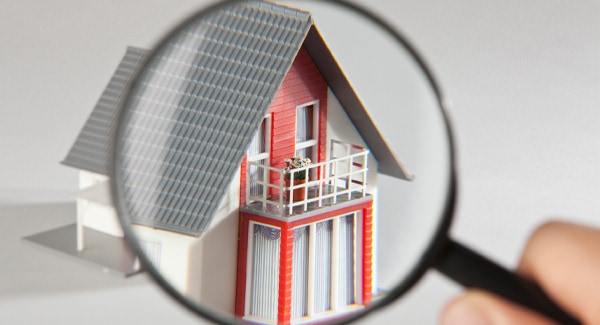
Last Updated on January 27, 2026
Most homebuyers would agree that the home inspection on a potential home purchase is probably the most important part of the process.
The goal is to expose any major issues with the property prior to acquisition, to either ask for repairs prior to closing, or to update the offer to consider the financial impact in making the repair(s) yourself.
What some buyers may not know is that there are multiple inspections that can be considered in addition to the general inspection. But first, one important reminder regarding any type of inspection:
It should be completed by an inspector who is licensed and in good standing with the licensure board in your area. You want someone qualified who can give you a thorough and accurate analysis of the property’s condition. Now, let’s talk about the different types of inspections you should consider when purchasing your next home! Not every home needs every type of inspection, but this should provide great guidance to narrow it down for you.
Roof inspection
The inspection of the roof should happen in the general inspection. If the inspector’s notes mention any issues with the roof, you should consider having a roofing contractor inspect it. This will give that added peace of mind because roof repairs can add up down the road.
Lead–based paint inspection
If the home was built prior to 1978, you should receive a lead warning disclosure from the seller. This does NOT always mean that the home is free of lead-based paint, so review that disclosure in detail.
It would be in your best interest to have a lead-based paint inspection completed. You can contact your local EPA to find an inspector who specializes in this.
Radon inspection
This radioactive gas can be found in crawl spaces or basements. High levels of radon have been connected to lung cancer, so it should be taken seriously to prevent any unnecessary exposure. Most general inspections include this test, but if not, you can find a qualified specialist through the National Radon Safety Board.
Mold inspection
. Moisture and that perfect temperature are notorious for creating mold in homes. If you feel the home is at risk of excessive mold or see any signs, such as a mold-like smell or dark areas that raise concern, we recommend you invest in this type of inspection.
Asbestos inspection
Before the 1980s, asbestos was used in home construction—you could find it in the roof, pipes, and even the insulation. Friable asbestos was later linked to various types of cancer. If your home was built before 1980, we highly recommend getting an inspection. An asbestos abatement company would be your go-to for this type of inspection.
Pool inspection
So you’re looking at a house with a pool? Are we invited? Pools are usually not thoroughly considered in a general inspection; this beautiful amenity deserves special attention. As a potential homebuyer, you want to confirm that the pool’s structure is sound and that the safety features are in place. Your Realtor can provide guidance on the best inspector for this job.
Electrical inspection
Your general inspection should review the electrical readiness of your home. If the general inspection reveals anything “off” about the home’s electrical system, you will want to get a reputable electrician out to conduct a thorough inspection.
HVAC inspection
Did you know the average cost to replace an HVAC unit is between $5,000-$10,000? The general inspection should include the HVAC system. If the final general inspection reveals anything abnormal, you should arrange a specialized inspection of the unit.
Also, if there is no service record for that unit, you should consider the additional inspection. This could possibly save you thousands. If the detailed inspection reveals a potential issue soon,you may want to consider adding this to your repair requests during the due diligence period.
Plumbing and sewer
This is another part of the home that should be reviewed in the general inspection. However, if any abnormalities are mentioned at all in the report, a more thorough inspection would be a smart move for the homebuyer.
Chimney inspection
Does your home have a beautiful fireplace? Well, we recommend a chimney inspection to ensure the ventilation is working as it should. This should also be done to remove any excess debris that may be in the chimney that could be a potential fire hazard.
Foundation and structure inspection
If you notice cracks, sagging doors, or sticking floors, you may want to have an additional structural inspection done on the property. Better to know about them now rather than later.
Pest and termite inspection
This one is usually well known in the home buying process. Those wood-destroying insects can cause homeowners quite a headache if not remediated.
The home buying process can seem overwhelming at times. So many things to consider when making the best possible financial decision on the home that’s perfect for you. Lean heavily on your Realtor during the home inspection time to make sure you have a clear understanding about the home you’re getting ready to purchase.
_________________
Howard Hanna Allen Tate Real Estate is the #1 real estate company in the Carolinas, with more than 75 offices and 1,800 agents serving communities across North and South Carolina. As part of Howard Hanna Real Estate Services, the largest family-owned and operated real estate company in the United States, Howard Hanna Allen Tate offers a full suite of real estate services, including mortgage, insurance, title and relocation. For more information, visit www.howardhannatate.com.



